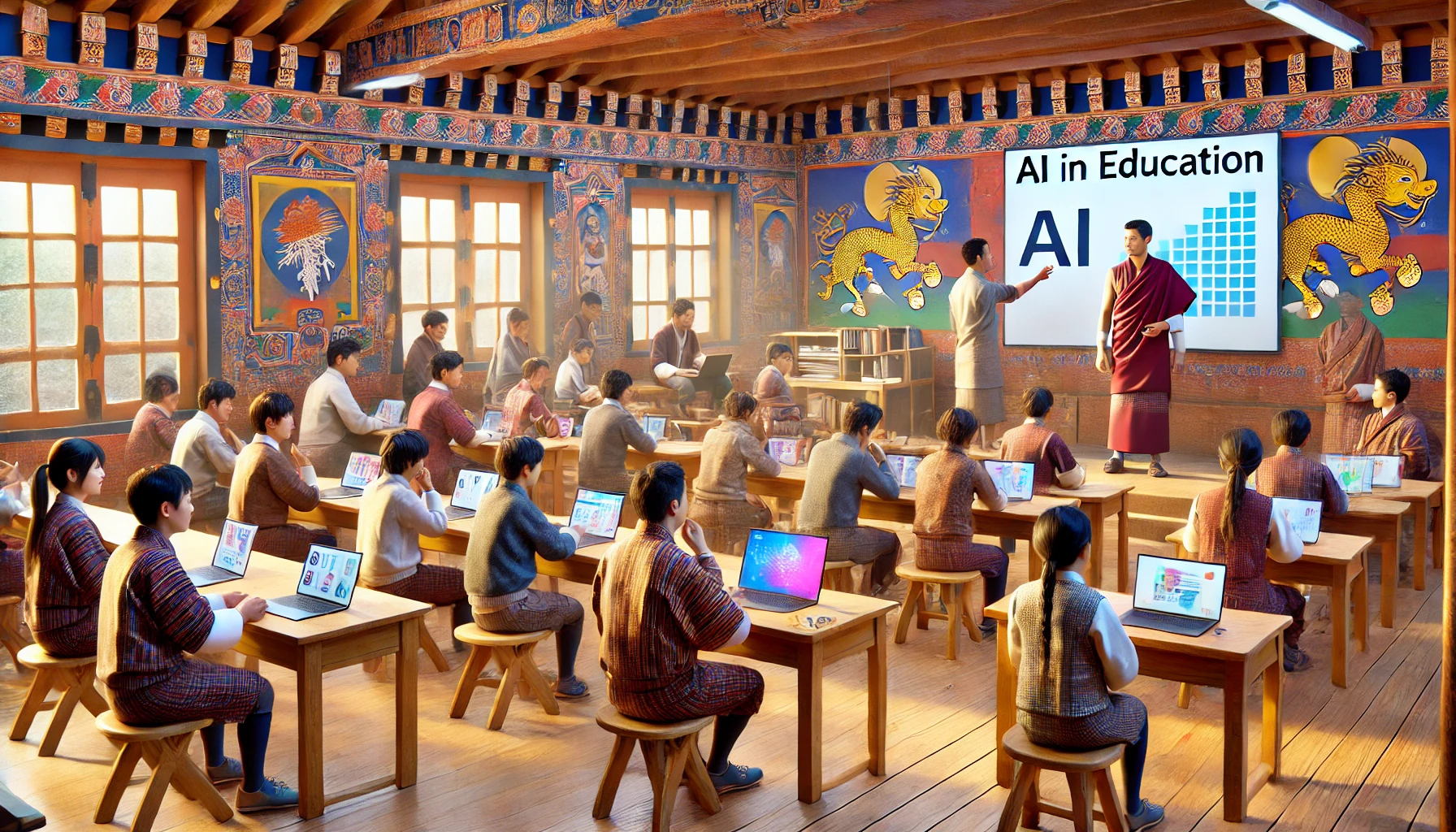Sherab Lhaden, a student from Motithang Higher Secondary School, said that she frequently uses AI tools to verify answers and generate ideas, especially when she is unsure about certain topics. However, she also pointed out the downside of AI, noting that it can make students overly reliant and less inclined to think independently.
Students are increasingly using AI tools such as ChatGPT, Gemini, and Co-Pilot to assist with their studies, citing both advantages and concerns about their impact on learning.
Sherab Lhaden, a student from Motithang Higher Secondary School (MHSS), said that she frequently uses AI tools to verify answers and generate ideas, especially when she is unsure about certain topics. “It significantly speeds up my work, which is crucial given our heavy assignment load,” she said. She finds AI particularly helpful in subjects like chemistry and mathematics. “I use AI to help me understand concepts, then filter the information and rewrite it in my own words.”
However, she also pointed out the downside of AI, noting that it can make students overly reliant and less inclined to think independently. “If you rely on it too much, it hinders your ability to memorise and think critically, especially during exams,” she said.
Another Class XI student from MHSS said she uses ChatGPT for schoolwork, particularly when she needs help outside of school hours and does not have immediate access to teachers or peers. While she considers AI a useful tool, she does not see it as a daily necessity. She said that some information provided by AI can be inaccurate and expressed concerns about its potential impact on creativity and cognitive abilities.
“If you know how to use AI properly, it is helpful, but if you don’t, it can have negative effects,” she said.
Tsholegin Dolma, a Class XII student from MHSS, said AI tools help students manage their workload by streamlining research and providing quick access to answers, especially in subjects like science and English. However, she and other students noted that their schools do not provide guidance on the ethical use of AI, nor do they have tools to detect AI-generated assignments.
“It is crucial for schools to teach students about the ethical use of AI, including issues like plagiarism and copyright,” students shared.
Ugyen Lodroe, another MHSS student, highlighted AI’s role in generating ideas for projects but warned of the risk of procrastination and overuse. “Students believe teachers often don’t detect or address AI-generated work, either due to a lack of awareness or the difficulty of checking,” he said.
A Class IX student from Lungtenzampa Middle Secondary School (LZMSS) said AI provides more detailed and understandable answers than a simple online search. However, she noted that while AI can simplify complex topics, follow-up clarifications can sometimes make the explanations more confusing. She added that their IT teacher has discussed the ethical use of AI, emphasising the importance of not sharing personal information and limiting the scope of queries.
Another LZMSS student, Tshering Tshogyel Yangzom, said ChatGPT is preferred over Google because of its comprehensive responses and ability to generate images. While she appreciates its role in expanding knowledge beyond textbooks, she acknowledged its potential to hinder creativity and originality if overused.
Teachers’ perspectives
Teachers also expressed mixed views on AI in education. Tshering Lham, vice principal of LZMSS, said monitoring AI usage in schools is challenging and requires robust policy development. She noted that teachers are trying to educate students on using AI responsibly without becoming dependent on it.
She also expressed concerns that students might use AI to complete assignments undetected, particularly given teachers’ heavy workloads and large class sizes.
Tshering Dorji, a geography teacher at MHSS, said the curriculum encourages students to explore beyond textbooks, often leading them to rely on AI. However, he said that teachers counter this by requiring multiple drafts and providing feedback. “We aim to teach students how to use AI for refinement rather than for wholesale content generation,” he said.
Dorji Tenzin, another MHSS teacher, said AI reliance could hamper critical thinking, problem-solving, and collaboration skills. He noted that teachers can sometimes detect AI-generated work when students use unusually sophisticated vocabulary. “For instance, words like ‘tailoring’ are rarely used by students in assignments,” he said.
In 2024, UNESCO released AI competency frameworks for students and teachers, outlining the necessary skills and knowledge for effective AI engagement. The framework aims to help countries implement policies and strategies for ethical AI integration in education.
As AI tools become more embedded in education, students and teachers alike there is need to navigate their use responsibly, ensuring that AI enhances learning without replacing critical thinking and creativity.
Source: https://asianews.network/


